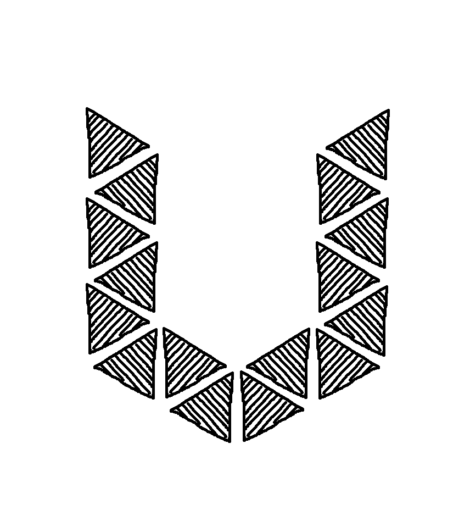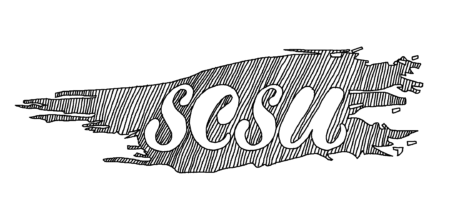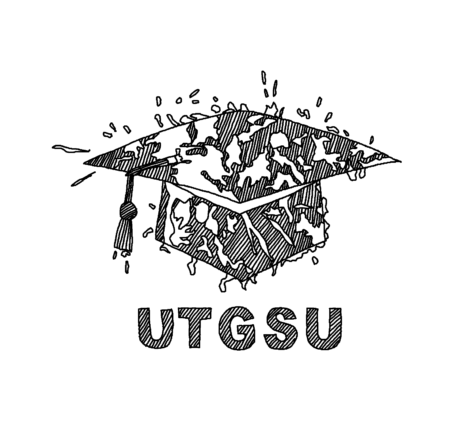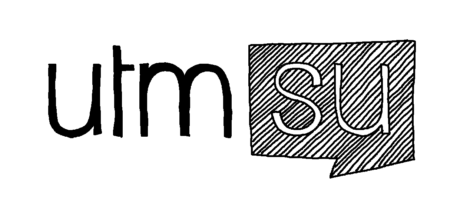Thanks to last year’s levy increase, The Varsity has expanded its tri-campus and graduate affairs coverage. We are proud to comprehensively report on the governance and election cycles of four major student unions: the University of Toronto Students’ Union (UTSU); the Scarborough Campus Students’ Union (SCSU); the University of Toronto Mississauga Students’ Union (UTMSU), and the University of Toronto Graduate Students’ Union (UTGSU).
With the emergence of a common threat — the provincial government’s Student Choice Initiative — student media and governments must remain committed, more than ever, to serving U of T students, earning their trust, and defending campus life. So let’s remember, student unions: our job is to keep students informed, and yours is to represent them.
As the academic year comes to an end, there is no better way to inform students than to review campus politics from the last year. All four unions must do better if we are to have meaningful student democracy.
For next year, let’s hope for more competitive and contested elections, more engagement with the membership, and unequivocal freedom of the press to cover student politics.
The SCSU
SCSU elections were the first of the season, and the most controversial. Unfortunately, controversy had been striking the union all year. In the fall, multiple food safety scandals raised serious concerns about sanitary practices on campus. Yet the union did not respond with meaningful action.
In December, the Board of Directors voted unanimously on a motion put forward by Director of Political Science Raymond Dang that would regulate and limit student media access to board meetings. Dang accused student media of “abusing their positions” and “misrepresenting the reality of the situation.”
The duty of media is to freely and independently hold those in power to account. During the 2019 SCSU elections, Dang expressed some regret for the policy. But it nonetheless demonstrated anti-democratic tendencies on the part of the union.
SCSU elections were, however, the most competitive and contested of the four unions. Two slates faced off, making for an engaged race, and ending in a split executive. But everything else was pure chaos.
One presidential candidate, SCSYou’s Anup Atwal, was questionably disqualified early on for multiple campaign violations. He made noise when he claimed that fellow presidential candidate, Shine Bright UTSC’s Chemi Lhamo, hit another candidate with a table, which Lhamo denied. Post-disqualification, he was exposed by The Underground, UTSC’s student paper, for making transphobic remarks about Vice-President (VP) Equity candidate Leon Tsai in a leaked group chat.
Controversy did not conclude once the election results were released. President-elect Lhamo became the target of an online harassment campaign due to her views on Tibetan independence. The story became a world headline.
Some U of T students agree with demands for the nullification of her election. But it is important that students respect democratic outcomes and demand change through voting or running as candidates themselves. Most importantly, it is unacceptable that an elected candidate face threats of violence.
Drama continued when the board refused to ratify Rayyan Alibux, who had been elected as VP Operations. Concerns were raised regarding Alibux’s involvement in Atwal’s transphobic remarks. In a Varsity op-ed, Alibux reasonably questioned the legality of the SCSU’s decision. The SCSU later reversed its decision and ratified Alibux.
The new SCSU must correct for the anti-democratic tendencies of its predecessors and ensure that elections are run competitively and fairly. And of course, it must cut the controversy.
The UTGSU
In December, the UTGSU Annual General Meeting (AGM) failed to meet quorum. As such, it was unable to pass important motions, including its 2017–2018 audited financial statements. Members were frustrated and some worried that the organization would financially default to the university.
At the General Council meeting immediately following the AGM, conflict arose between Varsity journalists and the council. The journalists were offered seating on the condition that they would not photograph or live-tweet the events, the latter of which they purposefully ignored as directed by The Varsity’s editors.
Live-tweeting helps ensure transparency, allows The Varsity to keep a public record of governance events, and makes meetings accessible to those who cannot attend. But The Varsity’s journalists were asked to leave.
These issues were resolved only recently. Over the course of several months, The Varsity had to defend its interest in reporting on the events of the union, and we still differ in our views of how the union’s activities should be scrutinized. Ultimately, journalists’ attendance at UTGSU meetings is still subject to challenge from UTGSU members.
The union’s elections were overwhelmingly dominated by incumbents. Five of the seven individuals elected are returning to positions they held last year. This suggests that insiders will retain control of the organization, and that little is likely to change.
Moreover, only five per cent of eligible students voted, demonstrating that engagement with the union is very weak. This undermines the credibility and mandate of the elected representatives.
Nevertheless, The Varsity is able to provide a valuable service to our readership, which overlaps with the UTGSU’s membership, by reporting on the union’s activities and working to increase awareness. We hope the UTGSU works to smooth out its operations, address engagement, and, in time, fully accept the importance of our presence in the room.
The UTMSU
This year, the UTMSU made significant changes both internally and externally. During their AGMs, the UTMSU and UTSU voted unanimously to separate.
With this separation, funds paid to the UTSU by UTM students will instead be paid to the UTMSU to directly improve campus life there. This is a step in the right direction. According to incoming President Atif Abdullah, one way these funds could be used is to create more bursaries for UTM students.
After intense debate at the AGM, students voted to reject online voting in UTMSU elections. This was disappointing. As UTM is a commuter campus, online voting is the most accessible means to involve students in campus governance. Incorporating online voting could have increased voter turnout at UTM, which was 13 per cent last year.
It is clear that the UTMSU has not made itself accessible to students. In this year’s election, the Students United slate swept all five executive positions. There was no other slate, and the majority of positions were uncontested.
If students were engaged, the race would have been more competitive. UTMSU executives should take a closer look at how they operate and what they can do to improve student engagement, and not just during elections.
For starters, the UTMSU should be more transparent by letting The Medium, UTM’s student paper, do its job. Earlier this year, a conflict between the two was publicized. The Medium has its flaws, including questionable journalistic standards, but nonetheless serves as an important voice at UTM, keeping students informed about their elected representatives. As such, the UTMSU should invite criticism from The Medium — not seek to limit it.
To its credit, the UTMSU has been able to introduce a U-Pass and the course retake policy, and extend the credit/no credit deadline. These have taken years to develop and implement and are important to UTM students. If the UTMSU worked to increase transparency with The Medium and facilitate engagement among students, it could achieve much more. 
The UTSU
At the UTSU AGM last fall, slates were banned from future elections. Slates had previously enabled teams of candidates to run under organized platforms.
UTSU President Anne Boucher claimed that independent candidates, as opposed to slated candidates, would offer voters a better understanding of the individual running as opposed to the team to which they belong. Many also criticize slates for an elitist culture that favours insiders. In theory, these are valid perspectives that justify the ban.
But the same night that slates were banned, another remarkable phenomenon took place: the UTSU failed to maintain the required quorum of 50 attendees. This despite being one of the largest student unions in Canada. This spoke to the UTSU’s longstanding and fundamental engagement problem.
The UTSU’s attempt to make elections more accessible to outsiders by banning slates, when the union continued to face, and had yet to resolve, its engagement problem, turned out to be a huge miscalculation. The casualty was the 2019 UTSU election.
This year, no candidates ran for three of the seven executive positions, including the crucial VP Operations and Student Life roles that are needed this summer to draft a budget and prepare for orientation. There were also no candidates for 18 out of 28 Board of Director positions — which means it will be unable to meet quorum and function. The 10 positions that had candidates were all uncontested.
The lack of candidates and contested positions is extremely concerning, and reflects the lowest level of engagement in recent history. Voters responded in kind: turnout was 4.2 per cent — the worst of all four unions this year — and no executive candidates garnered 1,000 votes.
This contrasts with the three previous spring elections, where candidates tended to surpass this threshold and voter turnout was at least double. In those elections, there was at least one full slate competing.
In practice, slates serve to ensure that a given team fields candidates for all available positions, and by running under an organized platform, more easily engages voters. Only after securing a record of stronger engagement and turnout should the UTSU have considered a slate ban.
As it stands, the 2019–2020 UTSU has an extremely weak mandate to govern. The current UTSU has been forced to hold by-elections in April to address the unfilled positions, before the new term starts in May. Given that these elections will occur during exam season, we have low expectations for the quality of campaigning and level of engagement from students.
Next year, the UTSU’s priority must be to market itself better, recognizing that students do not feel heard, represented, or connected to it. It must launch a campaign that builds a better relationship with students to justify its existence and its fees, and improve voter and candidate turnout for next year’s election.
Externally, it must be more vocal vis-à-vis the university administration with student concerns like the weather cancellation policy and mental health resources. And, of course, it — alongside the three other unions — must lobby the provincial government to minimize the impact that the Student Choice Initiative and Ontario Student Assistance Program changes have on student life and finances.
The Varsity’s editorial board is elected by the masthead at the beginning of each semester. For more information about the editorial policy, email [email protected].





